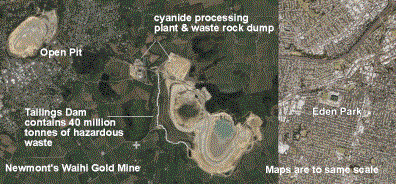Yesterday I blogged in support of DPF's suggestion that Cabinet papers and related material be automatically placed on the internet within six months. Its a good idea, which would significantly boost the transparency of our government. But why stop at Cabinet?
One of the innovations of the UK Freedom of Information Act is the idea of a publication scheme - a legally binding document, approved by the Information Commissioner, which requires an organisation to publish certain classes of information. The model publication scheme [PDF] requires organisations to publish information on:
- Who we are and what we do
- What we spend and how we spend it (including information on procurement methods and contracts)
- What our priorities are and what we are doing (targets, performance indicators, and reviews)
- How we make decisions (including "policy proposals and decisions")
- Our policies and procedures
- Lists and registers (information held by the organisation on others in its regulatory role)
- The services we offer
All of this information must be published online. NZ government departments already do much of this, but not all of it, particularly around contracts and tenders. They should be required to.
A second UK innovation is a "disclosure register" (example here) - basically an online archive of recent requests and responses. This lets people see what is being requested, and also saves time by avoiding multiple requests for identical information (in that people will hopefully Google or check the register first). No legislation would be required for an NZ government department to implement such a register, and I'm surprised that none have yet.
Both of these measures are aimed at overcoming the fundamental flaw of the request-response-appeal model: that information is given only to the requestor. In some cases, e.g. requests for personal information, that is appropriate - but the overall effect is to limit the dissemination of public information unless it is more widely publicised. To give an example, I just wasted some time requesting information on police handling of electoral act complaints (including a complaint to the Ombudsmen because the police, as usual, did not give a shit and were late). I found out last night that that information had been previously requested by DPF. A disclosure log would have saved everyone - me, the police, and the Ombudsmen's office - a lot of trouble.
More generally, information held by government departments is public information, it belongs to us. And we should have a right to access it whenever we choose. In an internet age, where government departments manage their work through internal document databases, we should be able to access those databases directly, and read the work of government in near-real time. We have the technical capability to do this - just mirror the database on the web, containing those documents cleared for public release (under the same criteria that would apply if it was requested the moment it was created) and the titles and metadata of all other documents. The question is purely one of political will. The OIA has already transformed our system of government, and made it far more open. But we can, and should, do better.









